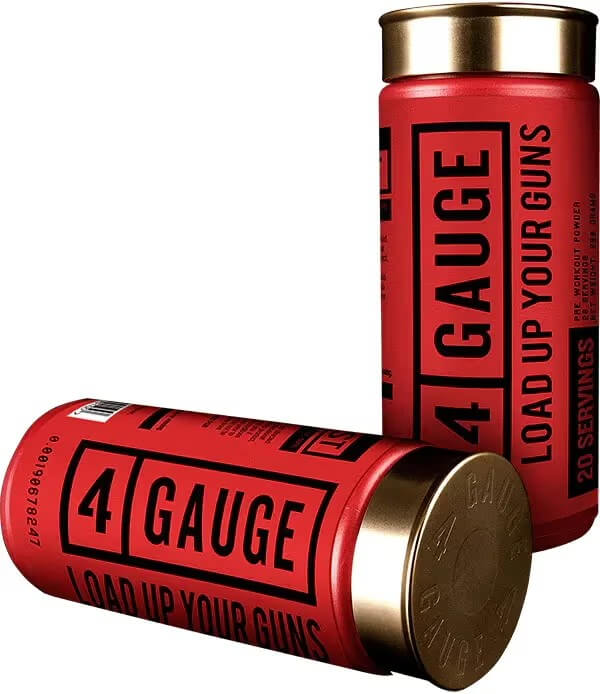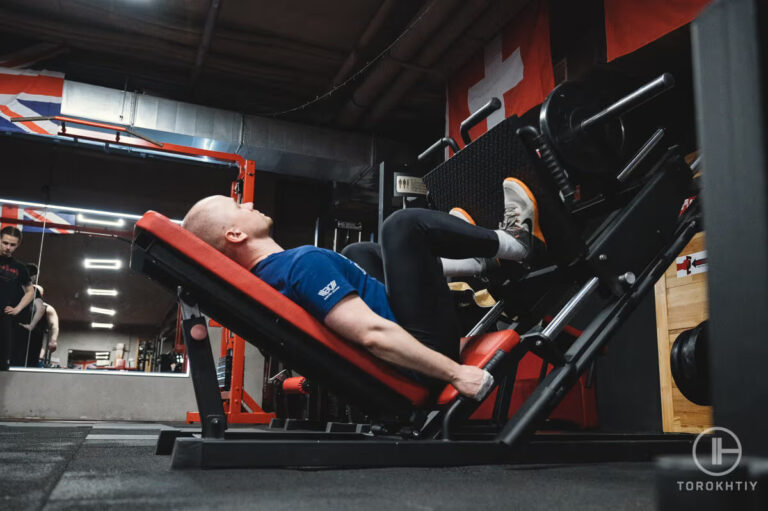How Long Does Pre Workout Last?
Are you an athlete who wants to know how long pre-workouts stay in your system? You are in the right place. Individuals can improve their performances during training by taking a pre-workout.
The various formulas can help to boost your energy levels to achieve fitness. However, it is crucial to know how long the pre-workout lasts before taking it.
Pre-workout supplements are products used among athletes and fitness enthusiasts to boost their performance. These products contain ingredients with specific half-lives.
How Long Does Pre Workout Last? Half-life is the time required for a quantity (of substance) to reduce to half of its initial value (for example, caffeine on average has a half-life of four to six hours, so if you ingest 200mg with coffee by noon, you might still have 100mg in your body around 5 pm).
Therefore, you must know how long a pre workout lasts in your body before ingesting any option. However, the total duration of a formula depends on more factors.

How Long Does Pre Workout Last (In Your Body)?
If you are wondering how long does it take for preworkout to wear off, this depends on various factors including the supplement’s half-life, dosage, athlete’s genetic makeup, age, sex and more.
They might come with ingredients that take about 1-2 hours to break down in half but also with the longer lasting ones like Caffeine and/or Alpha-GPC, which have a half-life between 4 to 6 hours.
The common pre-workout ingredients include caffeine, arginine, creatine, beta-alanine and more. Learn more about some of these compounds and their half lives:
1. Caffeine
After taking caffeine you might start feeling some effects after 5 minutes, it takes around 30 minutes to peak and that should persist for about 60 minutes. This stimulant has a half-life of about four to six hours.
Caffeine can help to boost your energy levels while improving mental and physical performance via mechanisms like its ability to bind to adenosine receptors.
2. Arginine
Arginine is an amino acid found in pre-workouts because it improves blood circulation by dilating the blood vessels and stimulating collagen synthesis. The compound reaches peak plasma concentrations within 20 to 30 minutes after intake, with its half-life spanning from 1.5 to to 2 hours.
How long the pre-workout with arginine lasts in your body depends on the dose and your metabolism.

3. Creatine
Creatine is an essential compound that is synthesized naturally in the liver, pancreas, and kidneys. However, it can also be an ingredient in pre-workout products. If used correctly – consistently, it helps to improve athletic performance, hydration, muscle mass, and cognitive functions.
4. Beta-Alanine
Fatigue is one of the major worries during exercise sessions. However, you might be able to tackle this by ingesting a pre-workout containing the amino acid, beta-alanine. Although your body produces it naturally, taking a supplement with this compound as an ingredient can help you last longer during workouts.
This amino acid is the precursor of carnosine, which can act as a buffer of hydrogen ions H+ , and reduce the acidity in the active muscles during high intensity exercise, making it a fatigue blocker. If you want to know how long beta alanine lasts, it’s simple.
The compound achieves peak plasma levels in 25 minutes, while it takes as long as 3 hours to return to baseline concentrations. Taken consistently can have a cumulative effect of raising your baseline levels.
Now that you know the common ingredients in pre-workouts, you should take note of their average half-life when planning your dosage . The action of these supplements peak after some minutes and might last for several hours depending on the ingredient.
However, users may experience a crash, fatigue, or other side effects as the pre-workout starts to wear off.
When to Take Pre-workout for It to Last the Whole Workout?
Usually for an average 60-120 min gym session you can take your pre-workout 15-60 min before exercising, but of course, like always, there are some exceptions. It depends on the formula, duration of the workout, personal experience, health, genetic makeup, age, sex and more.
It is essential to consider the supplement’s duration of action. For instance, pre-workouts containing caffeine start acting after 5 minutes, but can affect your body for hours (for example on average caffeine half life is 4-6h.
If you ingest 500mg you might have 250mg after 4-6h and then 125mg after another 4-6h and 62,5mg after and so) so, you should plan the quantity of supplement depending on the length of your session and how long does pre workout last after and ingested.
In some people, taking a high dose of pre-workout can cause jitters, anxiety, and/or other unpleasant side effects, especially for sensitive individuals. Overall, taking all of the above into consideration you must learn to adjust the timing based on personal experience and preferences.
When You Can’t Take Pre-workout – Possible Side Effects
After knowing how long does pre workout last in your body, it is also crucial to learn its possible side effects of pre workout last. Though most pre-workouts are certified safe by the Food and Drug Administration (FDA), it is essential to take the right dosage to avoid detrimental effects on your health.
Pre-workout supplements may cause some side effects, especially if taken in high dosages or if the user is sensitive to some ingredients. Some common side effects include nausea and vomiting, headaches, insomnia, rapid heartbeat, anxiety, high blood pressure, dizziness, and tingling or numbness.
Here are the side effects of the commonest pre-workout ingredients:
1. Caffeine
If you are using a pre-workout, it is crucial to regularly monitor your caffeine intake. Here’s why! The pre-workouts might contain a certain amount of caffeine. Taking an extra cup of coffee builds up its concentration in the body.
You should avoid having more than 400mg of caffeine in your system. Safe and recommended dose is 1-3 mg/kg of bodyweight, taken in a single dose.
Caffeine is a stimulant that acts on your nervous system. Primarily, used correctly can boost your awareness and mental alertness for the duration of its action by delaying the fatigue as it binds to adenosine receptors.
Adenosine is a compound that makes us feel tired, and you will accumulate even more adenosine with time after ingesting caffeine. Thus, caffeine boosts your energy and it blocks the action of adenosine by occupying its receptors in the brain.
However, this compound will affect your sleep patterns if used incorrectly, which is unhealthy for your brain and body. Also, Caffeine is a diuretic and can cause the loss of sodium and fluids – although data suggests that the fluid in caffeinated drinks – like coffee, balances the diuretic effect of typical caffeine levels.

2. Dehydration
Dehydration is a possible side effect of taking pre-workouts for your session without drinking enough fluids and electrolytes. However, you should also make efforts in your pre-workout regimen.
Depending on the environment, type of workout, and its duration, consider keeping water with some electrolytes and maybe even carbohydrates, close by if you would be spending time at the gym.
Supplements may enhance your mental and physical performance, which can make the sessions even more demanding, So, be sure that you stay hydrated before and after working out.
To prevent these side effects, it is advisable to start with small dosages and increase gradually to higher ones only if needed and when it does not exceed total daily recommendation. You must always check the ingredients of a pre-workout to ensure it is safe for consumption.
The Pre-Workout We Recommend: 4 Gauge
If you are looking for a supplement to improve your workout sessions, 4 Gauge might be a good choice. This is a popular pre-workout supplement designed to improve athletic performance. It comprises various high-quality, natural ingredients, such as caffeine, creatine, beetroot extracts, L-theanine, beta-alanine, L-citrulline, and rhodiola rosea.
All these constituents combine to provide an effective energy boost with minimal side effects. Therefore, 4 Gauge might be a good option for athletes and fitness enthusiasts.
You may enjoy numerous benefits from using 4 Gauge pre-workout before your exercise routine. The supplement boasts a smooth blend of ingredients with peculiar effects.
Caffeine and L-theanine work together to achieve deep focus and mental alertness, while creatine and beta-alanine can increase your energy expenditure, endurance, and power output when taken consistently . L-citrulline increases blood flow and reduces fatigue during intense exercise.
Also, the red beetroot extract improves oxygen uptake for improved performance and recovery.

4 Gauge is considered safe by the FDA and well-tolerated by most users. However, it can cause some minor side effects such as jitteriness, increased heart rate, and difficulty sleeping. Usually, healthy users can avoid these side effects by following the recommended dosage and eliminating other sources of caffeine or stimulants.
Overall, 4 Gauge is a pre-workout supplement that offers various benefits for athletes and fitness enthusiasts. It boasts a unique blend of ingredients to provide a safe and effective boost to your athletic performance.
FAQ
How Late Is Too Late for Pre-workout?
If you have the question “does pre workout affect sleep?”, you should know that these supplements commonly contain stimulants, such as caffeine. So, you should avoid them close to your bedtime, as this could affect your sleep quality and patterns.
For instance, caffeine has a half-life of four to six hours, so if you ingest 100mg by noon, 50mg is left in your body by 5pm. As a rule, avoid using pre-workout within six to eight hours of your bedtime, though this depends on the dose.
Do You Crash After Pre-workout?
The potential to crash after pre-workout depends on the individual, the ingredients in the supplement, and the dosage. These products might contain high doses of caffeine or other stimulants, which tend to cause a dip in energy levels as they wear off. The crash might present as fatigue, headaches, and drowsiness.
Should I Chug Pre-workout?
Users are discouraged from consuming a pre-workout too quickly. This could lead to negative side effects, such as nausea and jitters, especially with stimulants like caffeine. It helps to check the label for information about consuming the supplement correctly.
Also, start with a lower dosage to gauge your tolerance because overconsumption poses serious health risks, such as increased heart rate, high blood pressure, or even a heart attack.
How Long Does Pre-workout Stay In Urine?
The length of time pre-workout supplements stay in the urine depends on several factors, such as the ingredients, dosage, and the individual’s metabolism and hydration status. Many pre-workout supplements contain caffeine, which can be detected in the urine for up to 3 to 5 days after consumption.
Conclusion
If anything that you are doing OFFSETS/DISRUPT regular high quality sleep or duration – you are undermining the prohealth benefits of that thing.
If used correctly, pre-workout supplements might be a nice way to boost physical performance during workouts. Their duration of action varies depending on numerous factors, but they generally last between minutes to hours.
Creatine and beta-alanine build up in the body over several weeks and have a long term action. It is advisable to start with small dosages and increase gradually over time. Also, you should be aware of the possible side effects and take measures to avoid them.
How long does pre workout last in water? How long does pre workout stay in your system? How long does pre workout last after mixed? How long does beta alanine last? How long does pre workout stay in urine? We encourage you to ask questions and share your thoughts in our comment section.
Also read:
- Strongest Pre Workout
- Best Pre Workout For Beginners
- How Long Does Pre Workout Take To Kick In
- What to Look For in a Pre Workout
- Why Is My Pre Workout Clumpy
- Can You Overdose on Pre Workout
- Pre Workout for Teenagers
- Does Pre Workout Make You Crash
- Best Pump Pre Workout
- Best Nitric Oxide Supplements
References:
- L-arginine: Benefits, Dosage, Side Effects, and More // HealthLine: https://www.healthline.com/nutrition/l-arginine
- Should You Take Pre-Workout Supplements? // HealthLine: https://www.healthline.com/nutrition/pre-workout-supplements
- What Is Caffeine, and Is It Good or Bad for Health? // HealthLine: https://www.healthline.com/nutrition/what-is-caffeine
Why Trust Us?
With over 20 years in Olympic Weightlifting, our team does its best to provide the audience with ultimate support and meet the needs and requirements of advanced athletes and professional lifters, as well as people who strive to open new opportunities and develop their physical capabilities with us.
By trusting the recommendations of our certified experts in coaching, nutrition, dietology, and sports training programming, as well as scientific consultants, and physiotherapists, we provide you with thorough, well-considered, and scientifically proven content. All the information given in the articles concerning workout programming, separate exercises, and athletic performance, in general, is based on verified data. We ensure that you can rely on our professionals’ pieces of advice and recommendations that can be treated as personalized ones which will benefit you and fully meet your needs.
The product testing process is described in more detail here
Author: Jacek Szymanowski
Certified Nutritionist,
M.Sc.Eng. Biotechnology
Performance Architect,
Strength and Conditioning Specialist
With over 30 years of fighting experience, specialization in nutrition coaching for athletes, and expertise in metabolic health and dietary strategies, Jacek offers a comprehensive approach to optimizing your performance and well-being. Backed by a Master of Science degree in Biotechnology, Jacek remains at the forefront of scientific advancements, ensuring that his coaching is always evidence-based and up-to-date.








